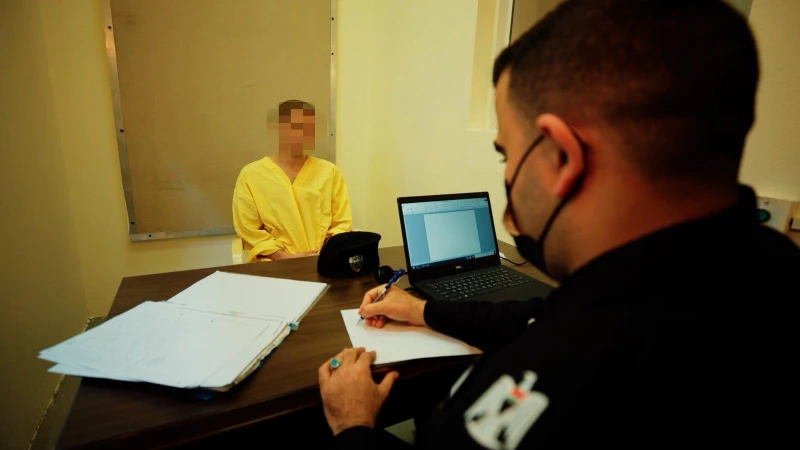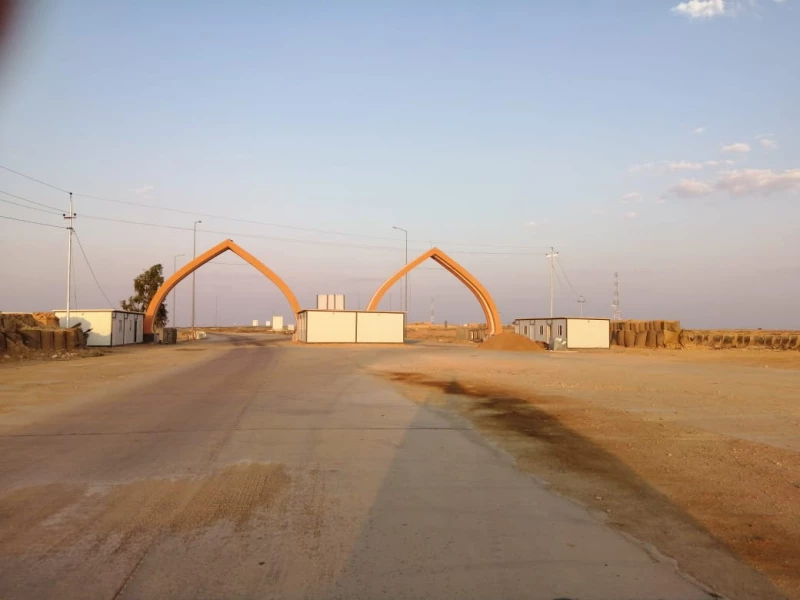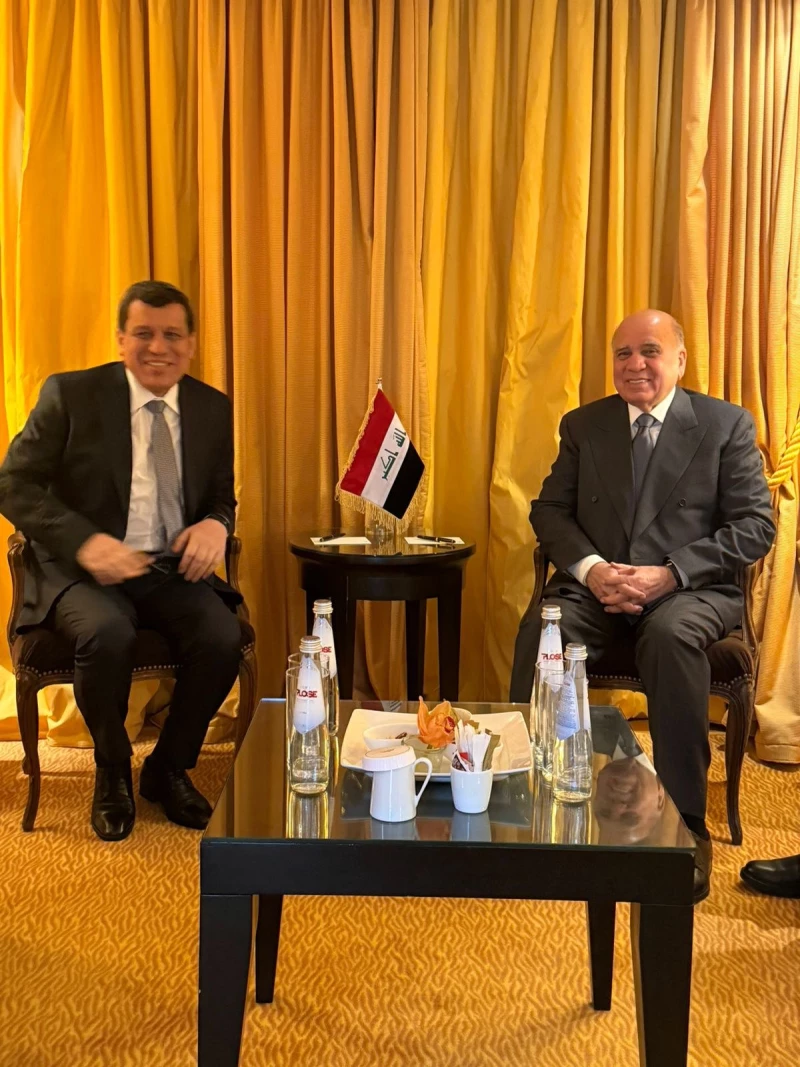Throughout the crises in Iraq's recent history, a recurring sentiment among government officials and political analysts has been that "democracy is worth the sacrifice."
They assert that all past and future developments are the dividends of the freedom Iraqis attained following Saddam Hussein's regime.
Under Saddam's authoritarian rule, Iraqis faced severe limitations on expressing their opinions, with the Baath Party exercising tight control over the public discourse.
Many anticipated a new era of freedom and expression for Iraqi citizens in the post-2003 period. However, in the tumultuous aftermath of Saddam Hussein's regime, concerns about laws, constitutions, and legislative frameworks for freedom took a backseat to the urgent need for security.
It was not until former Prime Minister Nouri al-Maliki's second term, following the 2011 protests that coincided with the Arab Spring revolutions, that demands for freedom gained prominence.
During that period, Maliki wielded his authority against the protesters, with his machinery propagating accusations linking them to the Baath Party, leading to their social ostracization before they faced government crackdowns.
Since then, there has been a prevailing sentiment that Iraq's political establishment, including its prominent figures, seeks to perpetuate a culture of stifling dissent within the country.
This conviction is reinforced by their insistence on preserving repressive legal provisions inherited from totalitarian regimes, which were previously utilized by Saddam Hussein's regime to target critics and opponents.
Despite the concerted efforts of journalists, writers, and civil society organizations to reform Iraq's legal system inherited from totalitarian regimes, progress has been elusive. Instead, restrictions have notably intensified, particularly in the aftermath of the October protests in 2019.
Saddam Hussein's lingering legacy
In recent years, Iraqi activists and journalists have faced prosecution and increased restriction under Article 226 of the Iraqi Penal Code.
This article stipulates that "anyone who publicly insults the parliament, the government, the courts, the armed forces, or any other official or semi-official institutions or authorities shall be punished by imprisonment for a term not exceeding seven years, or by detention or fine."
Recently, the Iraqi parliament made a revision to this article, albeit not fundamentally, which now reads as follows: "Anyone who publicly insults the legislative, judicial, or executive authorities, or regional or local authorities, or state departments or semi-official institutions, shall be punished by imprisonment or fine."
Additionally, a clause was added to the article stating that "it shall not be considered an insult, according to the provisions of the foregoing paragraph (first), any statement or action exercised within the framework of freedom of expression within its constitutional and legal limits, or the right to criticize public authorities with the intention of evaluating performance or expressing grievances."
Despite the amendment reducing the prison sentence from 7 years to imprisonment for up to 5 years, numerous activists have highlighted that the article remains "vague" and has failed to delineate the boundaries of freedom of expression.
Furthermore, the authority retains the power to define what constitutes insult, demonstrating that the political system intends to preserve the authoritarian regime's approach for their utilization whenever deemed necessary.
Iraq stands out as a prime example of systems oscillating between authoritarianism and democracy. It has been 21 years since Saddam Hussein's regime fell, yet its legacy in dealing with dissent remains palpable.
Authorities persist in wielding their power through legal mechanisms and other avenues to penalize individuals they perceive as deserving punishment.
On the anniversary of Saddam Hussein's regime downfall, the challenges within this political system are viewed as a form of repression, as noted by Mustafa Nasser, the head of the Association for the Defense of Press Freedom.
He further highlights that the political establishment carries the stigma of upholding the legal framework inherited from the previous dictatorial regime.
The Sudani era: Suppression veiled under ‘ethical allegations’
Iraq is now under its eighth Prime Minister since 2003. In October 2022, Mohammed Shiaa al-Sudani took office as Prime Minister in Iraq, backed by the "Coordination Framework," comprising armed factions from Shiite groups and other political allies.
However, his term lasted a mere five months before journalist Mohammed Na'na' was arrested for his ongoing critiques of Sudani.
When Mohammed Shiaa Al-Sudani, the Coordination Framework’s nominee, characterized Na'na' as possessing "a classical mindset tied to visions that do not contribute to nation-building," he also observed that Sudani was "held captive by four leaders within the Coordination Framework whom he cannot diverge from."
Na'na' was released on bail in March 2023, only to be rearrested in January 2024 by individuals armed and dressed in civilian attire.
However, Sudani's attorney subsequently declared that the Prime Minister had “pardoned" Na'na'.
At that juncture, activists perceived Sudani as employing a vindictive strategy against his detractors, first detaining and intimidating them, then having close confidants assert that he had "forgone his right to prosecute them."
At this juncture, in the aftermath of Al-Sudani's ascension to the prime ministership, a campaign labeled "Combatting Low Content" was initiated.
Arrest warrants were issued by the Supreme Judicial Council and executed by security agencies under the Iraqi Ministry of Interior, in a clampdown that aimed at numerous social media influencers accused of disseminating "indecent and offensive content against public decency."
The Iraqi authorities are yet to define "indecent content" or "public decency”.
Many perceive this campaign as a systematic effort to restrict public freedoms. Journalist Mustafa Nasser, in a brief WhatsApp exchange, remarked that "the Sudani government, through its various sectors, imposes moral and ideological oversight on society, at times using indecent content as a pretext, and at other times citing content that contravenes public morals."
According to Nasser, "the government and the judiciary are guilty of serious constitutional violations by embracing the campaign against indecent content, which was wielded to intimidate every content creator who does not adhere to the authoritarian methods and ideology of those in power. The campaign was also exploited as a pretext for suppressing, arresting, and detaining dissenting voices."
Ban on civil society organizations from universities
In November 2023, the Ministry of Higher Education and Scientific Research issued a directive to all government and private universities, instructing them to halt interactions with several international and local civil society organizations, among them prominent institutions with a longstanding presence.
Minister of Higher Education and Scientific Research, Naeem al-Aboudi, who hails from the "Asa'ib Ahl al-Haq" group, is yet to offer a clear explanation for the decision.
However, activists within these organizations interpret the move regarding such organizations as aligned with the views expressed by Asa'ib Ahl al-Haq's Secretary-General, Qais al-Khazali.
In a prior address, Khazali stated that “the United States of America allocates $3 billion annually to Iraq through civil society institution projects, raising the question: What is their objective in investing such hefty sums in Iraq?" He elaborated, "This allocation is primarily aimed at targeting our values, beliefs, and traditions."
The Minister of Higher Education and Scientific Research is yet to provide clarification regarding the crackdown on civil society organizations, as criticized by Khazali.
However, under the guise of "values, beliefs, traditions, and public decorum," systematic constraints are placed on freedom of expression in Iraq.
These nebulous terms leave room for interpretation, potentially endangering individuals who speak out against the prevalence of arms in the country or governmental performance overall.
The crackdown on social media bloggers
In late February 2024, the family of a blogger named Yasser al-Jubouri claimed that their son was "abducted" by officials from the office of the Sudani at Baghdad Airport while he was en route to his home country, Ireland.
During that period, there was widespread public outcry over the arrest of Jubouri, known for his critical commentary on the Sudani government via his X platform account.
Nonetheless, aides of the Prime Minister asserted that he had “pardoned” Jubouri shortly after his initial detention, suggesting a recurring pattern of targeting dissenters followed by their subsequent release.
Television presenter and director of the Baghdad Institute for Freedom of Expression, Aziz al-Rubaie, reflects on his experiences in 2003, amidst the collapse of Saddam Hussein's regime, recalling his hopeful anticipation of "a new era marked by fearless criticism."
Rubaie, known for his program spotlighting corruption in Iraq, asserts that the present situation in the country "suggests that the authorities have entrenched repressive legacies, particularly evident in the crackdown on journalists and opinion leaders, which they show no signs of relinquishing."
Rubaie does not dismiss the possibility of the current government, under Prime Minister Sudani, embarking on "bigger crackdowns to stifle dissent, potentially resulting in the arrest of journalists and activists critical of the government in both traditional media outlets and social media platforms."
Journalistic websites blocked
As part of its efforts to curtail freedom of expression, Sudani’s administration has taken measures to block access to several Iraqi news websites, including prominent ones like "Ultra Iraq," as well as a satirical platform called "Border Network”( I am not sure what border network is).
This action comes in response to articles and reports on these platforms that criticize the government's handling of various issues.
Hameed al-Sayyid, spokesperson for the Awareness Movement, asserts that "this administration is merely a continuation of past governments in eroding the space for freedoms, particularly those related to expression and protest."
According to Sayyid, this trend became apparent through a series of "actions undertaken during al-Sudani's tenure, starting with the blocking of reputable news websites not under his media office's influence and unaffected by his directives, followed by the arrest of numerous political activists, and culminating in near-total control over journalistic discourse and bloggers through a system that rewards monthly for praising unproductive achievements."
On March 6, 2024, Iraqi parliament member Mustafa Sannad claimed that Prime Minister Sudani's administration is allocating 650 million dinars per month to pages that advocate for it on social media platforms.
Many observers argue that the Sudani administration, touting its "achievements" like constructing bridges and improving select streets, seeks to instill a sense of "emergency" whereby services are traded for freedoms.
This strategy is viewed as an experiment, akin to the approach of Egyptian President Abdel Fattah el-Sisi, which activists believe garners admiration from Iraqi political leaders.
In a WhatsApp conversation with Sayyid, he underscored that the suppression of freedom of expression in Iraq mirrors "the Sisi experience in Egypt, where public discourse is confined within the parameters of systematically promoted services, at the expense of freedoms."
However, what sets apart Sudani's tenure, according to Sayyid, is that his endeavors represent "symbolic achievements that are unsustainable even if dissenting voices are suppressed, owing to the political pluralism preventing the Prime Minister, regardless of his choice, from centralizing all functions or politically and electorally monopolizing himself, as is the case with Sisi in Egypt."
TV appearances banned
In recent months, exchanged messages between the heads of the Supreme Federal Court, Jassim Mohammed Abboud, and President Abdul Latif Rashid, have revealed discussions regarding a "WhatsApp group," indicating that it "evaluates governmental bodies in a manner contrary to public order and norms," pledging accountability.
As of now, there has been no clarification regarding the messages, and whether evaluating government entities is considered a legal violation in Iraq or could lead to accountability for the sender.
However, following the exchanged messages, the Media and Communications Commission has opted to ban political affairs researcher Yahya al-Kubaisi from all media outlets.
The Media and Communications Commission serves as the regulatory body for media and communications in Iraq. Nevertheless, journalists have likened its actions to those of the "Ministry of Information" during Saddam Hussein's regime.
Over the past year, it has prohibited numerous political analysts and opinion leaders from voicing criticism against Sudani's government.
Such actions are viewed as a breach of its responsibilities, and its operations fail to exhibit the independence touted by government authorities.
Even over two decades after the downfall of Saddam Hussein's regime, Iraqi journalists continue to grapple with a myriad of challenges while reporting news, penning articles, or scrutinizing governmental authorities. In the past, their struggles involved contending with armed factions, but today they navigate the complexities of confronting both armed groups and official authorities concurrently.

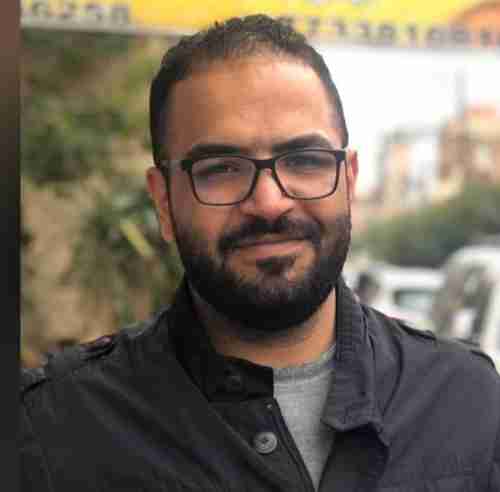
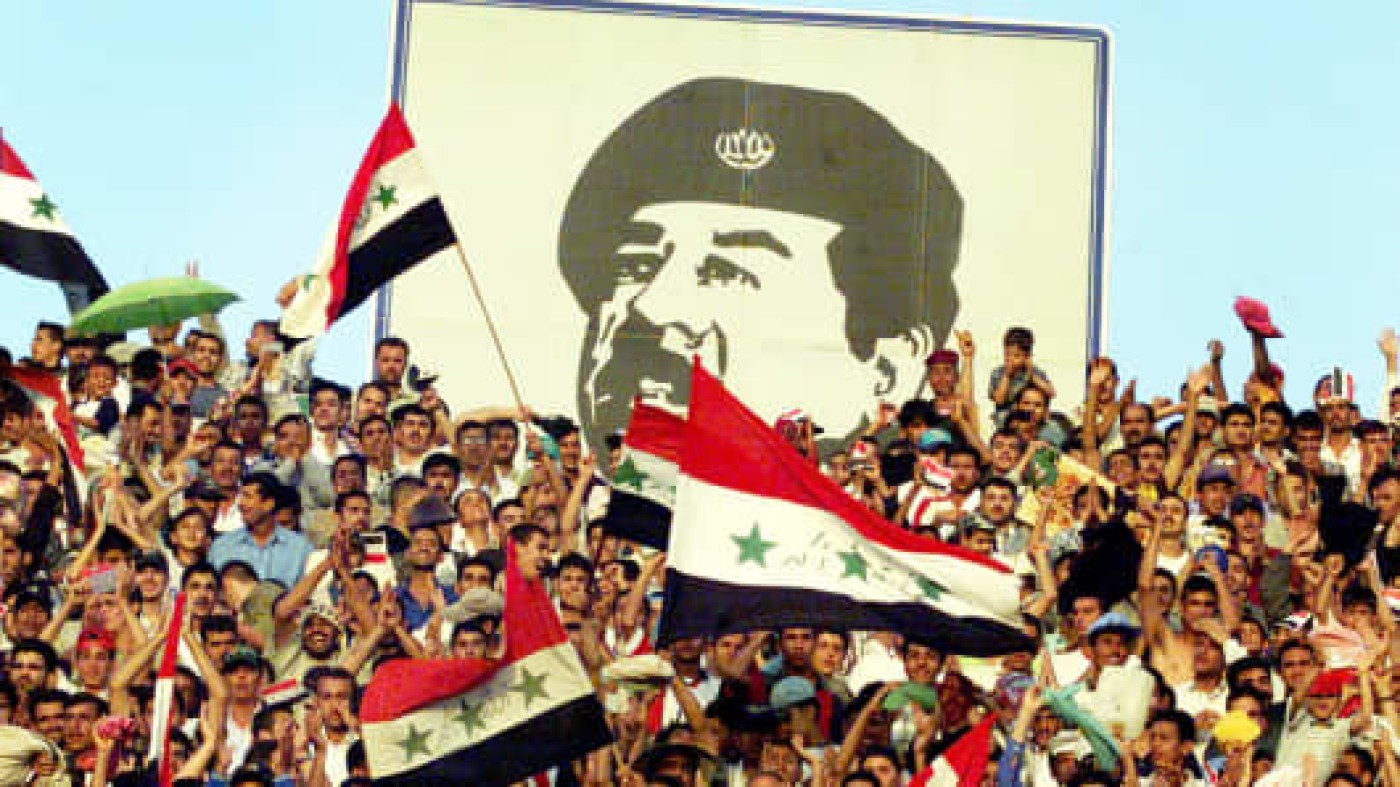
 Facebook
Facebook
 LinkedIn
LinkedIn
 Telegram
Telegram
 X
X
